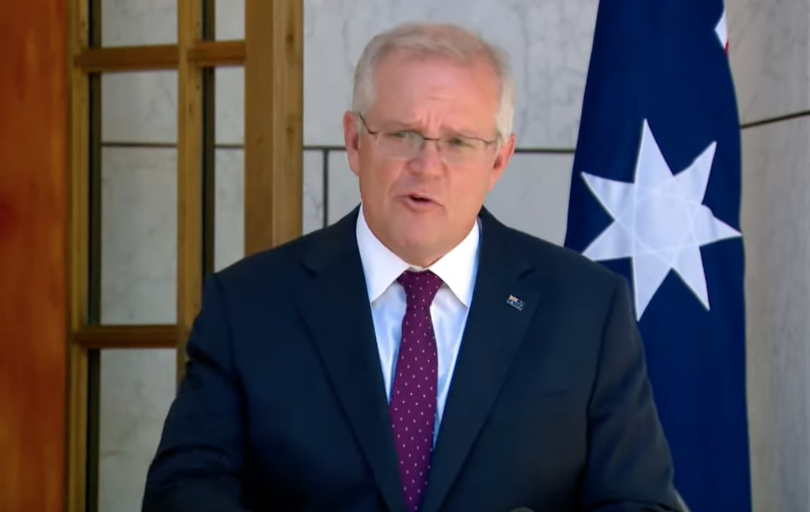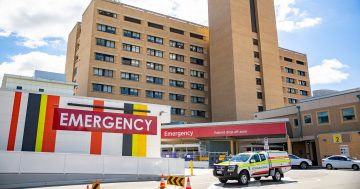
Scott Morrison announced changes to the definition of ‘close contacts’ this afternoon after National Cabinet. Photo: Screenshot.
UPDATED, FRIDAY: After announcing changes to the definition of a ‘close contact’ of COVID-19, the nation’s leaders have further relaxed the testing rules for the virus.
On Friday (31 December), following discussions with health professionals the leaders removed the need for a rapid antigen test on day six for confirmed cases in isolation, a previous requirement that had been announced the day before.
“If confirmed cases remain symptomatic, they should remain in isolation,” Prime Minister Scott Morrison said on Friday.
“Anyone with symptoms will continue to seek a PCR test.”
THURSDAY: The definition of a COVID-19 ‘close contact’ will change in five Australian states and territories tonight due to the fast-spreading Omicron variant.
National Cabinet met on Thursday (30 December) to discuss the issue before Prime Minister Scott Morrison announced national leaders had agreed to a “practical” way forward to dealing with the Omicron variant of the virus.
He said the “gear change” would reduce pressure on PCR testing for COVID, free up health workers and reduce the number of people who need to isolate.
“We need to reset how we think about the pandemic,” Mr Morrison said.
“Omicron is a game-changer.”
He said the new variant had resulted in more cases, but there was increasing evidence of its lower severity.
The new definition of a ‘close contact’ will come into effect in the ACT, NSW, Victoria, Queensland and South Australia from midnight tonight.
Tasmania, Western Australia and the Northern Territory will make their announcements in the coming days.
Under the new agreement, Mr Morrison said you are only a ‘close contact’ if you spend more than four hours with someone you live with who has COVID-19.
“Except in exceptional circumstances, a close contact is a household contact … of a confirmed case only,” he said.
“A ‘household contact’ is someone who lives with a case or hasn’t spent more than four hours with them in a house, accommodation or care facility setting.
“So, you are only a close contact if you are, effectively, living with someone or been in an accommodation setting with someone for more than four hours with someone who has actually got COVID – not someone who is in contact with someone who has had COVID.”
A confirmed case must isolate for seven days from the date they took their test, then on day six. They must have returned a negative rapid antigen test (RAT) before leaving isolation.
A ‘close contact’ who is symptomatic must have a PCR test, but if they are asymptomatic, they must have a RAT, and if that returns a positive result, they must have a PCR test.
If a ‘close contact’ returns a negative test they must still isolate for seven days from the date of exposure and have another RAT test on day six.
Mr Morrison said this changes who needs to line up to get a test.
“If you don’t fulfil this definition of a close contact then there is no need for you to be in that line. You should go home,” he said.
“If you’re anything other than a close contact, and you’re not symptomatic, you don’t need to go and get a test.”
He also said he hoped people would enjoy New Year’s Eve and look forward to the new year confidently, while also exercising “common sense”.
Speaking earlier today, Health Minister Greg Hunt advised New Year’s partygoers to “avoid the moshpit”.













